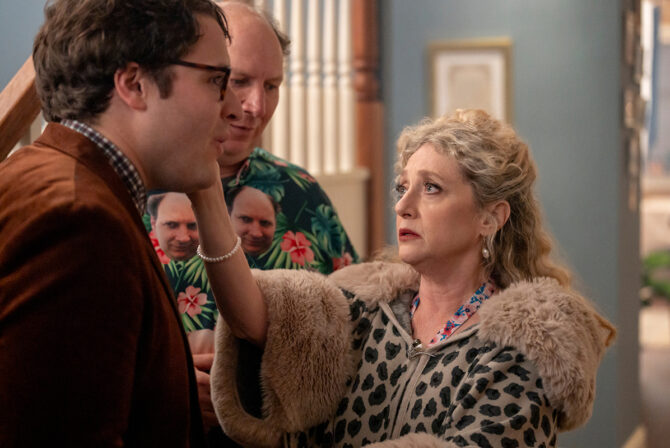As many moms anxiously prepare for the upcoming High Holidays, busy with long grocery shopping lists, menu planning, and getting their children prepared, singles are going through their own anxiety.
For many, Rosh Hashanah marks yet another year single, another year not yet a mom or dad. In 2011, fully one third of Jewish adults living in Manhattan, where I live, were single, never married. And among many of them, the conversations leading up to the holiday season, especially when weekday holidays make it tough to travel to see family, are sometimes filled with shoulder shrugs and sighs: “What are you doing for Rosh Hashanah?” “I don’t know, you?” “I don’t know…”
Singles don’t always have a natural solution of where and how to spend the holidays. For example, even though I had been an active member of my community, I’ve spent my share of holidays without plans, unable to drive to see my nephew and nieces for dinner and without a local invitation. It’s an ironic twist to my secular life, which is very social and full of extraordinary experiences.
It is by no means the responsibility of couples and families to make sure singles have a plan for the holidays. Single people can certainly host their own Rosh Hashanah dinners–I’ve done so on many occasions–but doing so can leave one feeling empty after the guests are gone and all that is left are the dirty dishes. And for some women at synagogue the next day, the feeling of loneliness is heightened by the empathy one feels for Hannah and her deep longing for motherhood. Furthermore, in traditional synagogue settings, married men wear talises and married women wear hats (or cover their hair). You can’t hide that you are unmarried yet another year, and at a very vulnerable time of year, it feels even more naked. At the very least, having a plan and people with whom to celebrate the Jewish New Year is a wonderful way to feel included and accepted in a family-oriented tradition.
There are a few relatively simple things one can do, or avoid doing, to make the High Holiday season a little less challenging for unmarried and unpartnered friends and family. Here they are:
1. Unless you have an invitation at-the-ready, don’t ask an unmarried or unpartnered person what he or she is doing for the holidays. They don’t always have an answer. It can embarrass both parties. In the same vein, don’t ask if she is “going home” for the holidays. She is home. She may be single, but she has a home. A better question, if you’re curious, might be to ask if she’s going to visit her parents for the holidays. But again, be prepared that the answer may not be yes.
2. Consider inviting an unmarried or unpartnered friend to your home if your family is hosting a dinner. Don’t assume uncoupled men and women would prefer to be “with their single friends.” Being single is a circumstance, not a common interest.
3. While it’s a lovely idea to invite people you do not know to your home, no one wants to feel like a “mitzvah.” Single people aren’t a “cause” but are sometimes made to feel that way. I once received a call that went something like this: “Hi. I don’t know you but I was given a list of random people who don’t have anywhere to go and you’re on the list.” I did, in fact, decline the invitation. Many single women and men are well-educated, successful people. For instance, Jewish women are more likely to have a bachelor’s or graduate degree than non-Jewish women–which is a factor in our later-age marital rates and later-age first births. We’re not single because we’re unaccomplished. We would just rather be alone than be in the wrong relationship. We’d also rather eat alone than feel like we’re a charity case.
4. An open-invitation is nice in theory, but no one really wants to invite herself over to someone’s home for dinner. It’s awkward and uncomfortable. It’s best to invite a guest with a specific date in mind. That way, everyone is prepared and looking forward to the occasion. The well-meaning “let us know if you need a place to eat” invitation isn’t inviting. We have food and a place to eat. What we don’t have is a feeling of connectedness to the holiday festivities.
5. Finally, sending out Jewish New Year cards is a lovely tradition. However, single women and men who long to be married and have children don’t take pleasure in a card with photos of your children wishing “you and your family” a sweet New Year. Unless the children are our nieces and nephews or other close family members, or very close friends of ours, the cards are not necessary. Instead, try something like this: “Just a text to wish you a Happy and Healthy New Year! May all your prayers be warmly received and your dreams come true.”
And I wish the very same to all of you. Shana Tova U’Metuka!
Melanie is the national bestselling author of SAVVY AUNTIE: The Ultimate Guide for Cool Aunts, Great-Aunts, Godmothers and All Women Who Love Kids.







